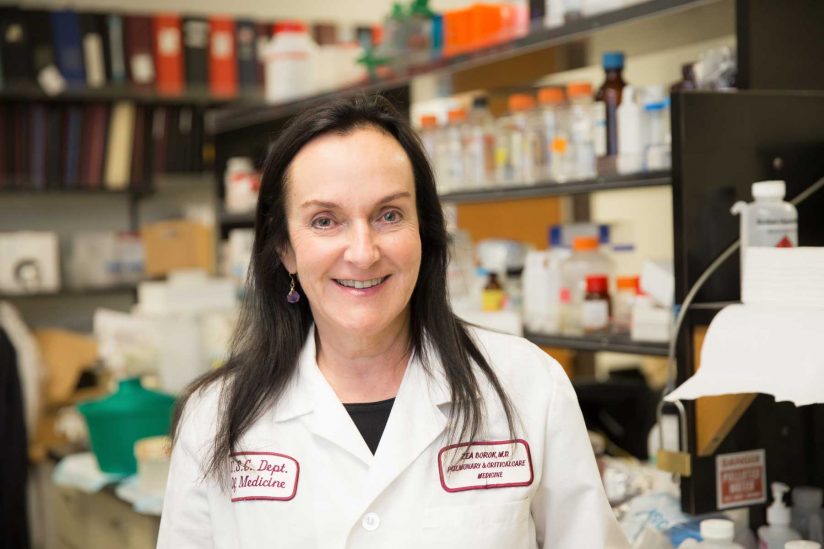
A National Institutes of Health grant will go toward research for the treatment of diseases like pulmonary fibrosis or COPD. (Illustration/iStock)
USC research could lead to treatment for common lung diseases
$6.9 million NIH grant allows Keck School of Medicine of USC team to study the regeneration of lung cells
Ambitious research on lung cell regeneration is underway at the Keck School of Medicine of USC.

Thanks to a multimillion grant from the National Institutes of Health’s National Heart, Lung and Blood Institute, professor Zea Borok is exploring how cells in the alveoli — the tiny air sacs in the lungs where gas exchange takes place — regenerate.
The seven-year, $6.9 million grant will support research that could translate into new treatments for common lung diseases like pulmonary fibrosis or chronic obstructive pulmonary disease.
“Without alveolar cells, you can’t breathe properly or you can go into respiratory failure and die,” Borok said. “That’s the endpoint of a lot of common lung diseases.”
Therapies for pulmonary fibrosis?
Borok’s research program is using different methods, including stem cell research, to learn more about how these cells are maintained and repair themselves.
Understanding the mechanisms that promote — or prevent — alveolar epithelial cell regeneration will offer valuable insight into how the lungs repair themselves after injury and could open the door to new therapies for lung diseases like pulmonary fibrosis, Borok said.
Pulmonary fibrosis, which primarily affects people 50 years of age and older, is a progressive disease that causes scarring in the lungs. Symptoms include shortness of breath or a dry cough. The cause is unknown.
The median survival rate for pulmonary fibrosis is three to five years, and current treatments are limited.
Zea Borok
“The median survival rate for pulmonary fibrosis is three to five years, and current treatments are limited. New drugs have been developed that will stabilize, but not cure, the condition. Lung transplantation is the only other option. There is a tremendous need for new therapies,” Borok said.
Launched in 2016, the R35 grant program from the National Heart, Lung and Blood Institute offers multiyear funding for emerging and outstanding researchers. By funding an investigator’s overall research program rather than a specific project, the grant is designed to provide more opportunities for pursuing novel research. USC is one of four institutions in California to be awarded an R35 grant this year.
“This generous grant from the NIH is a recognition of Dr. Borok’s exceptional contributions to alveolar epithelial cell research, and it will enable her to chart new territory in this field of study,” said Rohit Varma, dean of the Keck School of Medicine and director of the USC Gayle and Edward Roski Eye Institute. “We are looking forward to seeing where the science takes her.”
